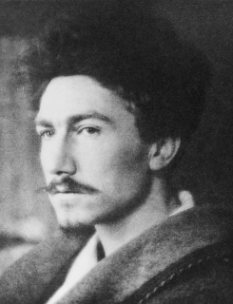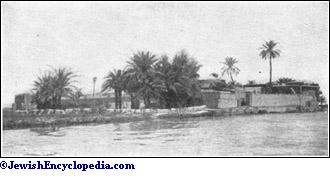|
EZRA
(EHZ-ruh)
Poet,
musician, critic, and major figure of the modernist movement
Priestly
scribe and author of two books of the Bible
Common
clues: Pound of poetry; Book before Nehemiah; Metrical Pound;
Poet Pound; Old Testament book
Crossword
puzzle frequency:
6 times a year
Frequency
in English language:
24115/86800
Video:
Who
knows Ezra Pound
Ezra
Weston Loomis Pound
(October 30 1885 – November 1 1972) was a poet, musician
and critic who, along with T. S. Eliot, was one of the major
figures of the modernist movement in early 20th century poetry.
He was the driving force behind several modernist movements,
notably Imagism and Vorticism. The critic Hugh Kenner said on
meeting Pound: "I suddenly knew that I was in the presence
of the center of modernism."

Ezra
Pound in 1913.
Importance
Because
of his political views, especially his support of Mussolini and
his anti-Semitism, Pound continues to attract much criticism.
Nevertheless, it is impossible to ignore the vital role he played
in the modernist revolution in 20th century literature in
English. This importance may be considered under four headings:
poet, critic, promoter, and translator.
As
a poet, Pound was one of the first to successfully employ free
verse in extended compositions. His Imagist poems influenced,
among others, the Objectivists and The
Cantos
were a touchstone for Ginsberg and other Beat poets. Almost every
'experimental' poet in English since the early 20th century is in
his debt.
As
critic, editor and promoter, Pound helped the careers of Yeats,
Eliot, Joyce, Wyndham Lewis, Robert Frost, William Carlos
Williams, H.D., Marianne Moore, Ernest Hemingway, D. H. Lawrence,
Louis Zukofsky, Basil Bunting, George Oppen, Charles Olson and
other modernist writers too numerous to mention as well as
neglected earlier writers like Walter Savage Landor and Gavin
Douglas.
Immediately
before the First World War Pound became interested in art when he
was associated with the Vorticists (Pound coined the word). Pound
did much to publicise the movement and was instrumental in
bringing the movement to the wider public (he was particularly
important in the artistic careers of Henri Gaudier-Brzeska and
Wyndham Lewis).
As
translator, although his mastery of languages is open to
question, Pound did much to introduce Provencal and Chinese
poetry, the Noh, Anglo-Saxon poetry and the Confucian classics to
a modern Western audience. He also translated and championed
Greek and Latin classics and helped keep these alive for poets at
a time when classical education was in decline.
In
the early '20s in Paris, Pound became interested in music, and
was probably the first serious writer in the 20th century to
praise the work of Vivaldi (who had been neglected for centuries)
and early music generally. He also helped the early career of
George Antheil, and collaborated with him on various projects.
The
secret to Pound's seemingly bizarre theories and political
commitments perhaps lie in his occult and mystical interests,
which biographers have only recently begun to document. 'The
Birth of Modernism' by Leon Surette is perhaps the best
introduction to this aspect of Pound's thought.

The
historical Ezra was a priestly scribe who is thought to have led
about 5,000 Israelite exiles living in Babylon to their home city
of Jerusalem in 459 BCE. Many scholars credit him as the author
of the Book of Ezra and the Book of 1 Chronicles in the Bible.

Site
traditionally described as the tomb of Ezra at Al Uzrayr near
Basra
He
is commemorated with the other Minor prophets in the Calendar of
saints of the Armenian Apostolic Church on July 31.
According
to the genealogy in Ezra 7:1-5, Ezra was the son of Seraiah (2
Kings 25:18-21), and a lineal descendant of Phinehas, the
grandson of Aaron. A similar genealogy is given in 1 Esdras 8, as
well as at the beginning of the Latin version of 2 Esdras, with
the addition of a few names. All versions of 2 Esdras mention
that he was also known as "Salathiel", "Shaltiel"
or "Sutu`el" (depending on the version language).
In
the seventh year of the reign of Artaxerxes I Longimanus, Ezra
obtained leave to go to Jerusalem and to take with him a company
of Israelites (Ezra 8). Artaxerxes showed great interest in
Ezra's undertaking, granting him "all his requests,"
and giving him gifts for the house of God. Ezra assembled a band
of approximately 5,000 exiles to go to Jerusalem. They rested on
the banks of the Ahava for three days and organized their
four-month march across the desert.
No
record exists for the 14 years between 459 BCE, when Ezra is
thought to have organized the ecclesiastical and civil affairs of
the Israelite nation, and 445 BCE, when Nehemiah first appears in
the Bible's chronology. Nehemiah's first recorded act was to
rebuild the ruined wall of the city. After this reconstruction, a
great group of people gathered in Jerusalem to dedicate the wall.
On the appointed day, Ezra and his assistants read the Torah
aloud to the whole population. According to the text, a great
religious awakening occurred. For successive days, beginning on
Rosh Hashanah, the people rejoiced in the holy days of the month
of Tishri. Ezra read the entire scroll of the Torah to the
people, and he and other scholars and Levites explained and
interpreted the deeper meanings and applications of the Torah to
the assembled crowd. These festivities culminated in an
enthusiastic and joyous seven-day celebration of the Festival of
Sukkot, concluding on the eighth day with the holiday of Shemini
Atzeret. On the 24th day, immediately following the holidays,
they held a solemn assembly, fasting and confessing their sins
and the iniquities of their fathers. Then, they renewed their
national covenant to follow the Torah and to observe and fulfill
all of the Lord's commandments, laws and decrees (Neh. 10:30).
Abuses were rectified, and arrangements for the temple service
were completed.
This
article is licensed under the GNU
Free Documentation License.
It uses material from the Wikipedia
article "Ezra Pound"
and “Ezra”.
EZRA
(332)
59 Tu >1 08 Poet Pound
42
Tu >1 09 Pound of poetry XXXX
28
Tu+ >1 08 Book before Nehemiah
17
We- >1 09 Old Testament book AMOS ESTR RUTH
15
Th- >1 06 University founder Cornell
13
>1 09 Better Than ___
13
We- >1 08 Book after II Chronicles
9
We >1 09 Pound of verse
6
We- >1 08 Cornell who founded Cornell
5
We- >1 04 Cornell of Cornell University
5
Mo >1 08 Cornell or Pound
5
Tu >1 04 Philanthropist Cornell
5
Th WSJ 05 Pound of poems
4
Th- >1 08 Biblical scribe
04
Stone of Aldrich fame
04
Actor/director Stone
3
We- >1 08 Book after Chronicles
3
We+ >1 01 Western Union founder Cornell
02
"Henry Aldrich" star Stone
2
Th Rea 07 Bible book ACTS AMOS RUTH
2
We- NYS 08 1963 Caldecott Medal winner ___ Jack Keats
2
Fr- >1 09 Bible book before Nehemiah
2
We- LAT 01 Book after Daniel
2
Th CSy 99 Book following 2 Chronicles
2
Tu >1 07 Book preceding Nehemiah
|